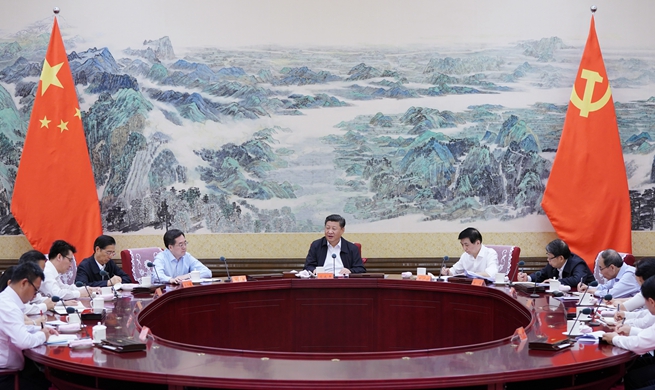CHICAGO, July 2 (Xinhua) -- A U.S. study has found that entangled, long-chain polymers in solutions relax at two different rates, or the polymers that make up synthetic materials need time to de-stress after processing.
Using a technique called single-molecule fluorescence microscopy, researchers the University of Illinois (UI) can watch in real time as individual polymer molecules relax after the stretching, pulling and squeezing of the manufacturing process.
"We found that the polymers exhibit one of two distinct relaxation modes," said co-author and UI graduate student Yuecheng Zhou.
"One group of polymers relaxed via a single decaying exponential rate and the other group showed a two-phase process. That second population undergoes a very quick initial retraction followed by a slow relaxation. The existence of two different molecular populations was unexpected and not predicted by classic theory."
The researchers have used high molecular-weight DNA in the study, as it serves as an ideal model of other types of synthetic organic polymers.
The researchers found that the percentage of the molecular subpopulation that exhibits the two-phase relaxation behavior increases as the overall polymer concentration increases in the entangled solutions.
"We are not certain why the single-mode relaxation or fast-retraction mode seems to be concentration-dependent, but it may have to do with enhanced interpolymer friction - the more polymers, the higher the chance they will interact, especially out of equilibrium," Zhou said.
The study could help improve synthetic materials manufacturing and has applications in biology, mechanical and materials sciences as well as condensed matter physics.
The study has been published in the journal Physical Review Letters.















